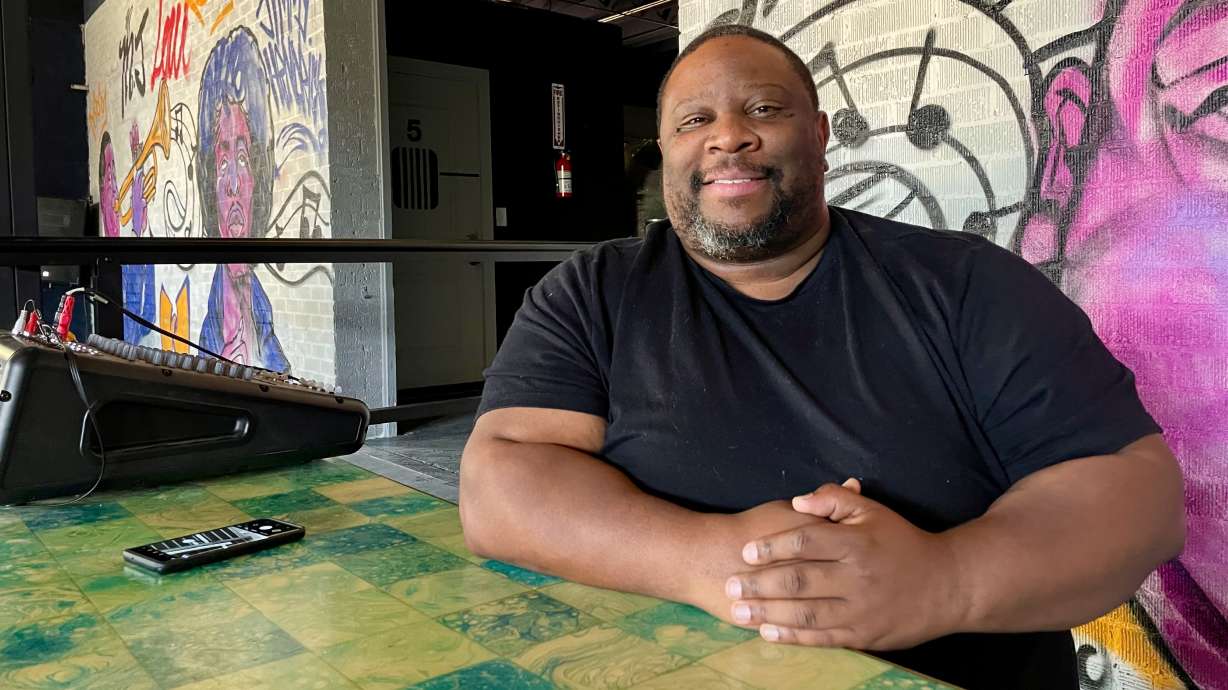Estimated read time: 3-4 minutes
- Deandre Ridgel has launched Policy Kings, Utah's first Black-owned brewery, in Salt Lake City.
- Ridgel, who moved the operation from Cedar City, emphasizes diversity and culture, aiming to broaden appeal to Black people and others of color.
- The city provided Policy Kings, located in the Central Ninth neighborhood, with a $75,000 loan.
SALT LAKE CITY — There is one thing Deandre Ridgel is most proud of in the short time his craft brewery has been open.
It's the diversity of clientele at his business — Black, white, Latino, Polynesian and more.
"They're in our space. They feel comfortable. They don't feel they're being looked at, or stared at, or scrutinized. And then the beer industry world enjoys seeing the diversity in the space because historically you don't see it," Ridgel said, seated in his new bar, Policy Kings, at 79 W. 900 South, in the Central Ninth neighborhood.
Ridgel first opened Policy Kings in Cedar City in 2018. With his lease expiring at the southern Utah location and sensing an opportunity in Utah's capital city, he closed that operation late last year and made the jump to Salt Lake City, opening his doors on May 23.
As a Black man in a business with very little Black representation, part of his aim has been to diversify craft brewing and broaden its appeal. His operation is the first Black-owned brewery in Utah, according to officials in Salt Lake City.
The Salt Lake City Council provided Policy Kings with a $75,000 Economic Development Loan Fund loan earlier this year to help Ridgel launch his business. In providing the loan, city officials referenced Ridgel's approach and focus.
"Our department is committed to supporting businesses that contribute to the economic and cultural fabric of Salt Lake City," said Lorena Riffo-Jenson, director of Salt Lake City's Department of Economic Development. "Policy Kings Brewery is not just a brewery. It's a gathering place where people can connect, and we're excited to help them make this transition."
Some brewers put a single-minded focus on the characteristics of the brew they make, and while that's important, it's not the only thing for Ridgel. "For us, our focus is beer and culture, beer and diversity. ... We're trying to be specific on being diverse and cultural and inclusive," he said.
According to the National Black Brewers Association, fewer than 1% of craft breweries in the United States are owned by African Americans, a disparity the trade group aims to counter. In a 2020 interview with the Brewers Association, another trade group, Ridgel referenced the gap, saying it motivated him in opening the first Policy Kings in Cedar City, where his wife, Sara, is from.
Still, as with most things, there's more to it than that. He had been making beer as a hobby while working in the information technology industry. Feeling burned out, he began considering his options and seized the opportunity to open a brewery, combining his love of beer-making with his desire to be an independent entrepreneur. With a limited number of craft breweries in Utah, there seemed to be plenty of growth potential.
"It was kind of a big jump, but he's always wanted to own his own business," said his wife. "It's been important to him."
Read more:
Indeed, Ridgel sees craft brewing and his business as a means to a greater end — creating a means of survival for him, his wife and their two kids and promoting a sense of community among patrons. While stressing his desire to see diversification in the industry, however, he doesn't want his business to be labeled simply a Black-owned brewery. He wants to be judged on the quality of the product he produces and the ambiance of his locale.
"When someone says Black-owned, they need to also consider and understand the years that we've put in as far as being a brewery," he said. "I have time behind brewing. I'm not a new brewery. I'm not a startup brewery."
He's hoping to start brewing his own recipes come August, after he gets the required licenses and finishes the needed upgrades to his location, decorated with the likenesses of Black musicians like Charlie Parker, Jimi Hendrix and Tupac Shakur.
Through it all, he'll keep the focus on creating a community. "I just want to be able to bring more people together that haven't been together," he said.











